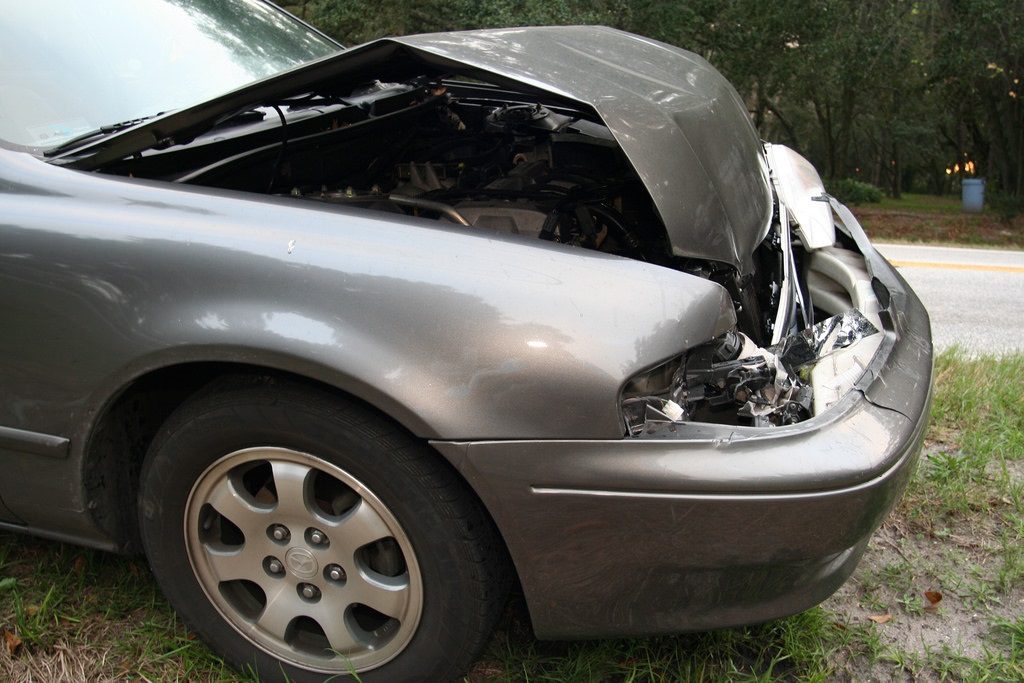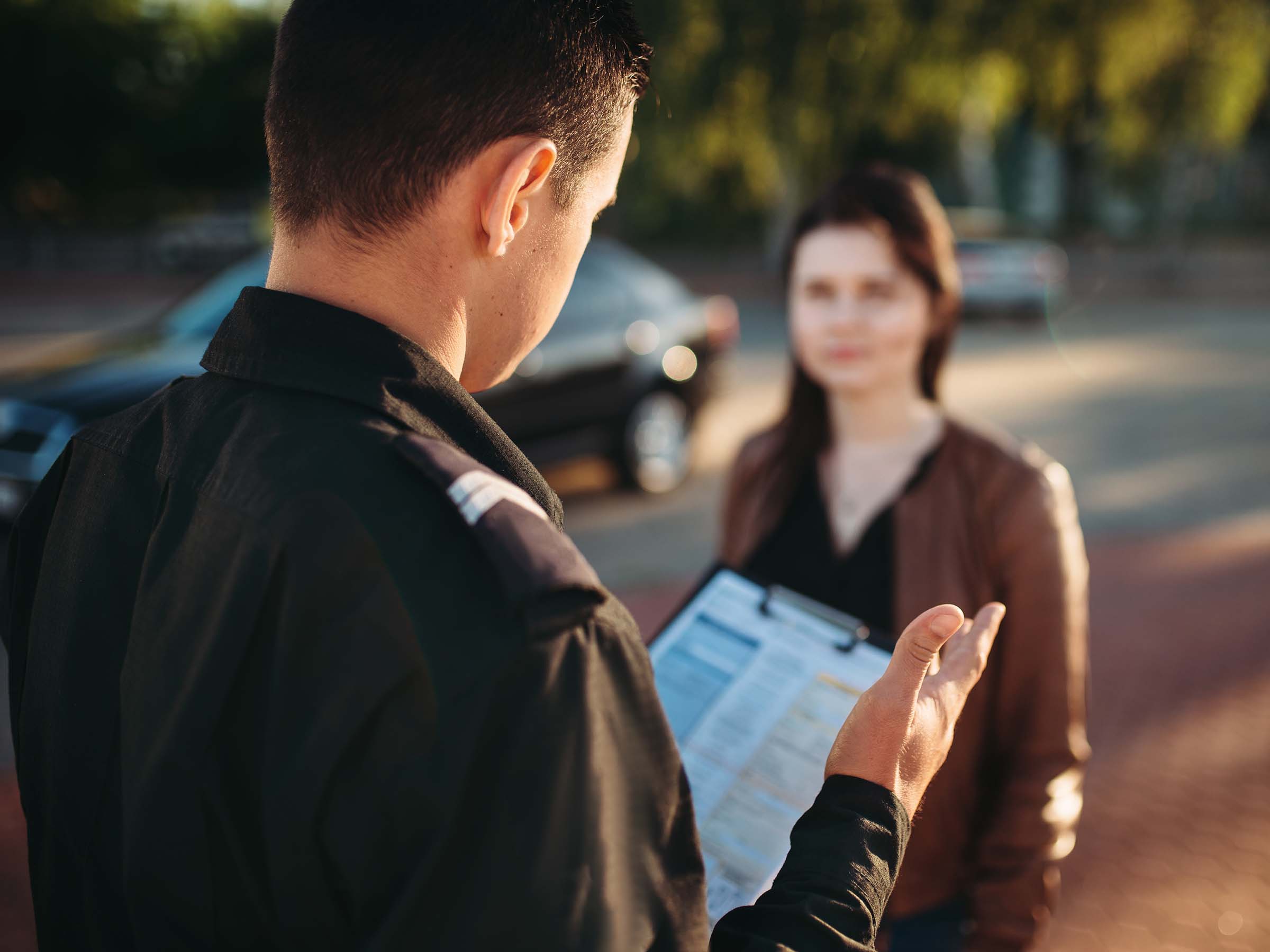After being the victim of an accident you may be left with a painful recovery and many questions as to who should be held responsible for your expenses. You’ll find that Kentucky Law differs from other states when it comes to filing a personal injury claim. A Kentucky personal injury lawyer can help you navigate state law to find out who can be held liable in your accident and how to get the maximum compensation for your injury.
Here are a few of the most commonly asked questions victims have asked Kaufman and Stigger after an accident.
What does Kentucky’s No-Fault Insurance mean for my accident?
Kentucky is one of several states that has a no-fault car accident insurance system. In Kentucky, this insurance is called Personal Injury Protection (PIP) and when you’re in an accident you generally seek damages from your own policy. This form of insurance pays out up to 10,000 dollars for your medical bills and lost wages.
A lawsuit can still be filed in many cases if an accident meets certain criteria. Kentucky statutes allow you to file a claim if medical bills exceed 1,000 dollars. A claim can also be possible if injuries are severe enough including permanent disfigurement and life-long disability. A local attorney at the Kaufman & Stigger Law Firm can help you determine if your case meets one of these circumstances.
Drivers in Kentucky can opt-out of no-fault insurance by submitting a form to the Department of Insurance. This choice allows you to sue after an accident, but it also allows other drivers to sue you.
What type of damages can I seek after an accident?
After a serious accident, a victim can be left with a long, painful recovery. Victims can accrue expensive medical bills and could need medical supervision for the rest of their lives. An injury can also leave victims unable to return to work. All of these consequences and more can be claimed by filing a lawsuit against the people responsible for your accident. Some of the damages you may be able to recover from their insurance include:
- Hospital and medical expenses.
- Past and future lost earnings.
- Past and future permanent physical disability such as a limp, scars, loss of a limb.
- Emotional distress, such as depression and anxiety.
- Damage or destruction of property.
- Physical pain and suffering
If you try to file a claim for yourself you may neglect to list some important hardships that you’ve suffered that can be part of a lawsuit. A legal professional from the Kaufman & Stigger Law Firm can help you determine exactly what compensation you should demand.
If a family member was killed can I file a claim?
After a deadly accident, the family of the victim may find themselves facing medical and funeral bills when they’ve just lost the financial support the deceased used to provide. Many people may have depended on the victim’s wages to pay for food, housing, school, etc. In these cases, certain close family members can file a wrongful death lawsuit.
Generally, a husband or wife, a son or daughter, or stepchild can file a wrongful death claim. If the victim’s parents were also dependent on the deceased, they may be able to file for damages. Some of those damages that may be compensated for are here:
Wrongful Death Claims
- Medical bills before death: If these bills are owed by the estate (heirs) of the deceased, then they can be claimed as a loss.
- Loss of income: This is based on the loss of financial support that the survivors would have received had the person not died.
- Psychological pain and suffering: The pain and suffering of the cyclist can’t be claimed by the family, but the anguish and psychological pain of the family can.
- Loss of companionship and guidance: This is typically claimed by dependent children robbed of a parent.
- Loss of Consortium and companionship: Consortium deals with the loss of intimacy and companionship a spouse would have received.
- Funeral and burial costs: Based on the reasonable costs to the family for burying the deceased
What if I was partially at fault for my accident?
You can file a claim against another driver, even if you think you are partially to blame in your accident. Kentucky is a pure comparative negligence state. That means the two parties or more involved in an accident can share percentages of the fault.
For example, a jury might find you 10% at fault in your car accident and find the other driver was responsible for 80% of the incident. If you were awarded 10,000 dollars in damages, the 10% you were to blame for would be subtracted from your award. You would receive 9,000 dollars for your claim.
Assistance from an attorney with the Kaufman and Stigger Law Firm can be beneficial in these cases. Your percentage of liability can be negotiated with an insurance adjuster or a jury if your case makes it to court. An attorney has experience in negotiating these terms and getting clients the lowest level of responsibility possible.
What’s the deadline in Kentucky for filing an accident claim?
Kentucky’s statute of limitations allows the victim in an accident involving an injury a full year from the date of an incident to file a lawsuit. This covers most types of personal injury accidents like traffic accidents, being injured on someone’s property, work accidents, etc.
For wrongful death claims, where a close family member files a lawsuit for their deceased loved one, the one-year deadline starts from the day the victim passes away.
In accidents involving only property damage, the law provides a two-year deadline.
Experts at Kaufman & Stigger Law Firm don’t recommend waiting that long to file a claim. The more time that passes, the harder it’ll be to gather evidence and documents to build your case.
What kind of evidence should I collect after an accident?
After you’ve seen to your immediate health and safety, you should begin documenting your accident. Try to follow these guidelines:
- Give a full report to dispatchers and police.
- Take photos. Document the scene. Take photos of any visible injuries.
- Talk to any witnesses.
- Exchange information with everyone involved but don’t make any statements about the accident. Insurance companies can use these statements against you later.
- Get checked out by EMS crews and your own doctor. Get everything documented.
- Keep any damaged clothing and personal items. Keep any car parts damaged in the accident. Don’t throw evidence out.
Do I need an attorney after a construction accident?
Construction accident claims are very complex and an attorney may be necessary just to figure out who might be at-fault for your accident. If the hazard that caused your accident was a known problem and no one did anything to repair it or make it safer then you may have a case. The owner of the property, the construction site firm, sub-contractors, equipment manufacturers and others may all prove to be liable.
Worker’s Compensation can help, but it generally doesn’t cover pain and suffering that you may go through as a result of your accident. It may not cover the emotional trauma you experience when you can’t return to your normal life.
Can I sue if I slip and fall in a grocery store or department store?
A property owner or anyone who operates a business on any property can be sued if you’re injured. This can be at a store, a gas station, a restaurant, an apartment building, etc. In these premises liability cases, you’ll be trying to prove that the owner and operator were negligent in removing that hazard that caused your injury.
You’ll have to prove the owner caused a hazard like a spill or damaged flooring and didn’t fix it. Or another customer could have caused the hazard, the owner knew of the danger and didn’t repair the problem. Also, the owner might not have known about the problem but reasonably should have known about it and fixed it.
As we saw in auto accidents above, the same deadlines apply. You generally have a year after an accident that caused an injury to file a claim. You have two years to claim any property damage involved. Comparative Negligence applies to slips and falls too. You can be partially to blame for your accident but still collect damages from a property owner for their part in the injury.
What happens in a hit and run case?
If you were in an auto accident, pedestrian accident, or bicycle accident and the other driver fled the scene you can still recover damages for your injuries and property damage. Kentucky’s no-fault insurance system comes into play here as well (see above).
In injury cases where the other driver is never identified the victim would file a claim with their own insurance company. The standard compensation under no-fault claims would apply. As mentioned above, if the accident meets a certain threshold of severity a liability claim beyond the standard no-fault insurance claim may be possible.
Will I have to go to court to sue someone?
Personal injury cases rarely make it to trial. Reaching a settlement with those responsible for your accident is much more likely. The at-fault defendants generally prefer to settle before facing a jury. Around 80% of cases will result in a settlement before involving the courts. Then 90% of those cases headed for trial end up getting settled out of court too.
Contact a Kentucky Personal Injury Attorney Today
If you have more questions or if you or a family member has been the victim in an accident please contact the attorneys at Kaufman & Stigger. If someone was to blame for causing your injuries, you need an experienced attorney on your side to help you hold them accountable.
The attorneys at Kaufman & Stigger, PLLC, have that knowledge and a combined 100 years’ experience in helping clients get compensation after a tragic accident. To discuss your case, call Kaufman & Stigger, PLLC today, at (800) 937-8443 or click here to contact them online.



